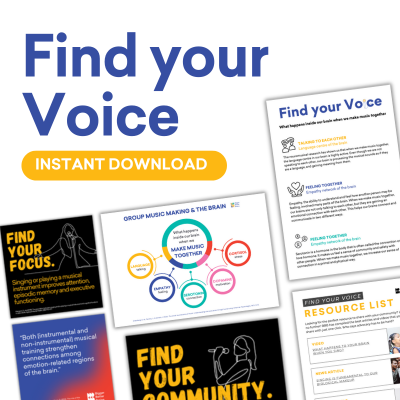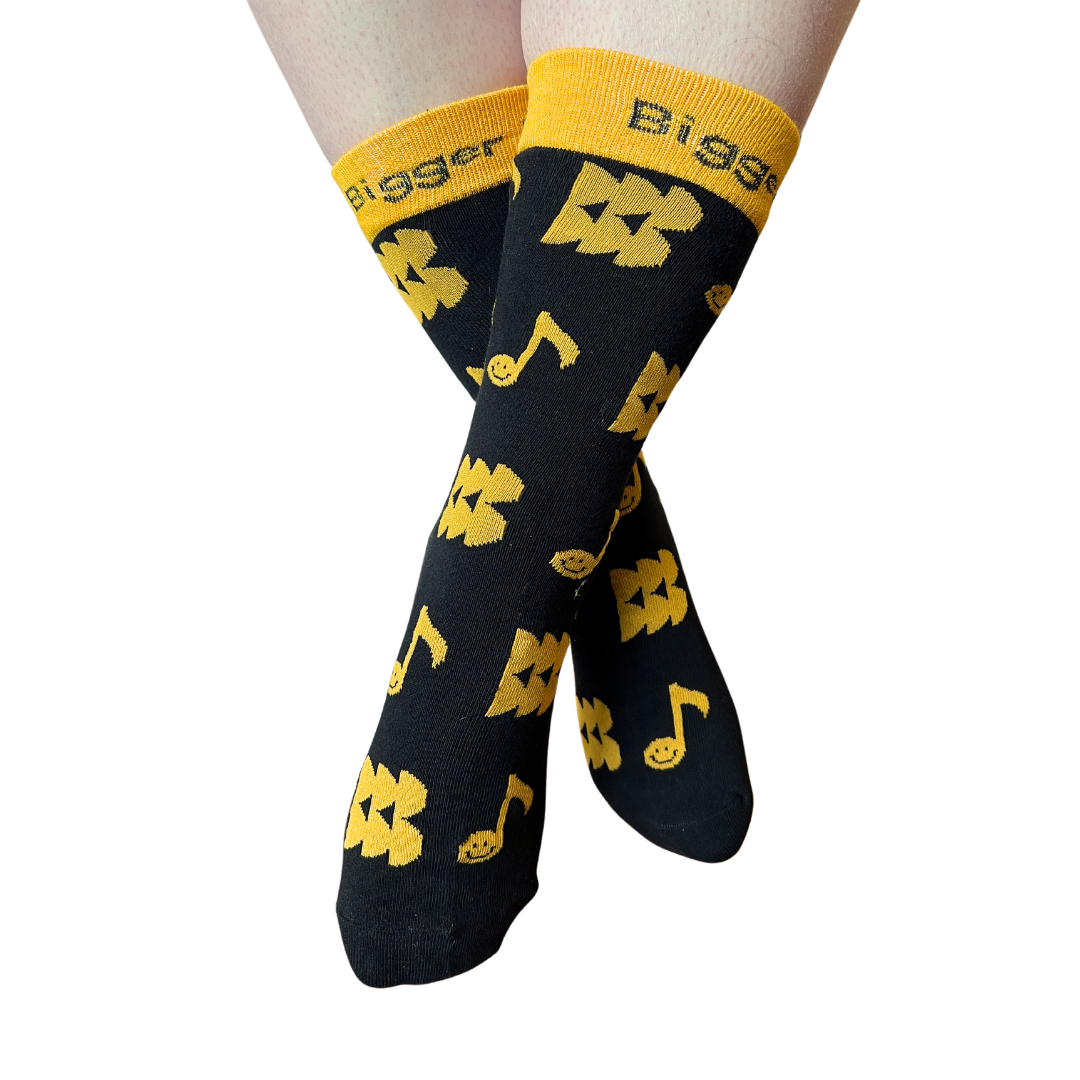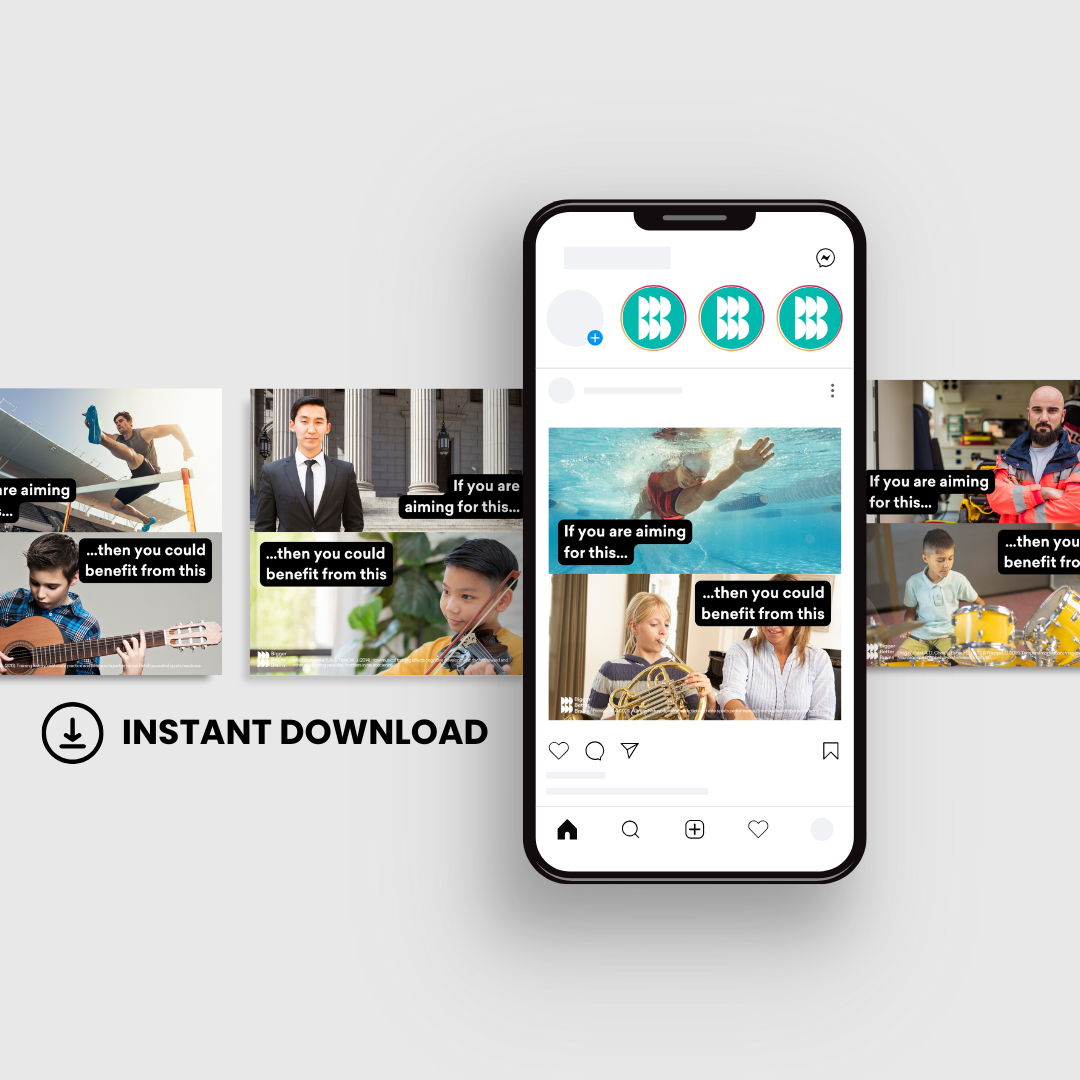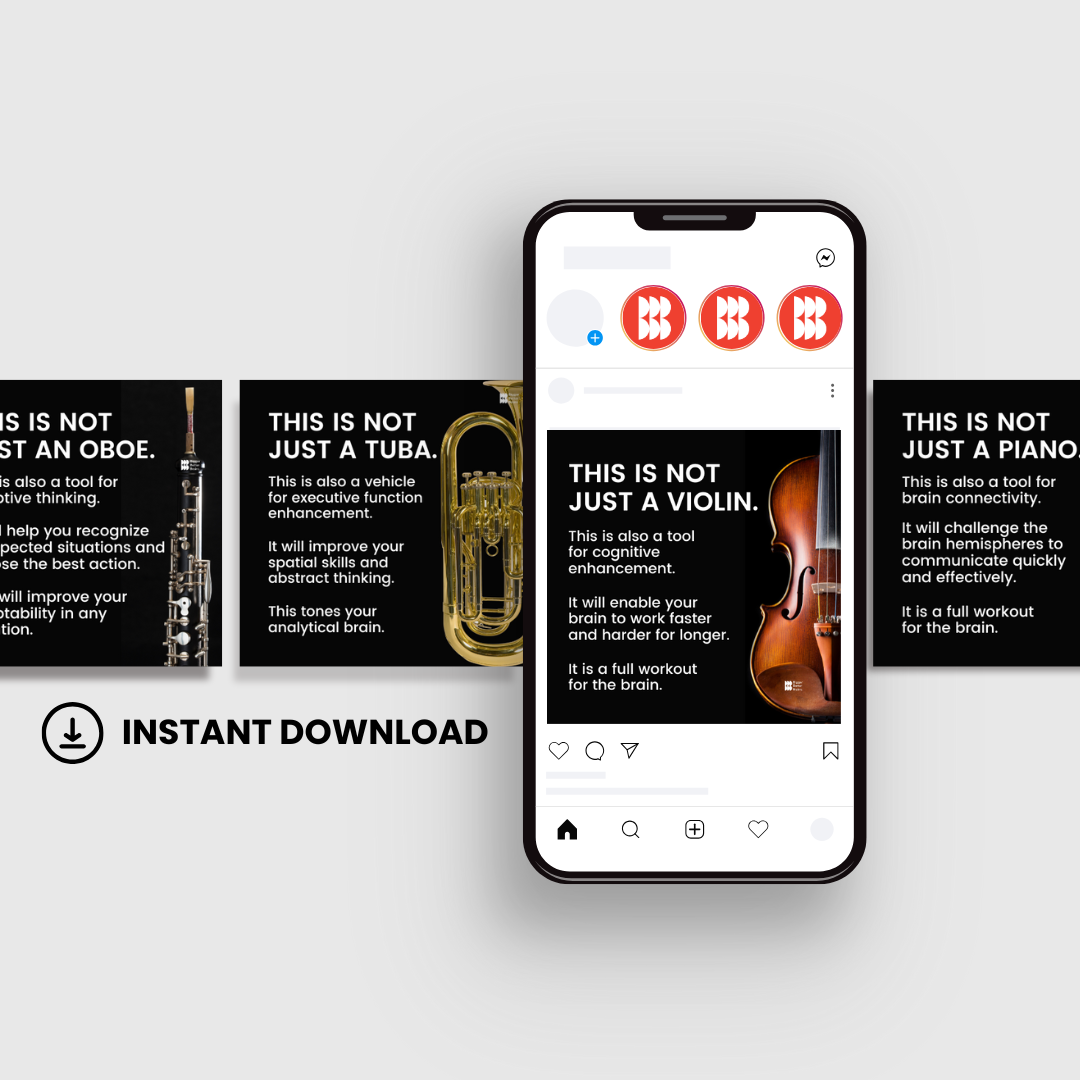
Research Updates

Here at Bigger Better Brains we believe that through educating yourself, you can then educate and affect positive change in your community.
With all of the research in the field of neuromusical science, our BBB Research section serves as a content hub for you. We regularly share findings and break down the latest research to educate and inspire discussion. We hope you enjoy this page on our website and share BBB news with your colleagues, parents and students.
Playing a musical instrument or singing in a choir may boost your brain
A recent study published in the International Journal of Geriatric Psychiatry found that individuals with a history of musical experience, regardless of proficiency or instrument played, exhibited better memory and executive function.
New neuroscience research upends traditional theories of early language learning in babies
New research challenges traditional theories of infant language acquisition, suggesting that babies primarily learn language through rhythmic rather than phonetic information in their initial months.
Fireworks 006 - How do you tell the story of your work?
Packed with BBB updates and our year in review, a new opinion piece written by Dr Anita Collins, a new research reflection, and so much more. Fireworks will inspire and motivate you to advocate for music education.
Music is the Jackpot!
This video contains excerpts from an ARTSpeaks event held on November 8, 2021. In this video, neurobiologist Nina Kraus explores the impact that music learning has on young students in the areas of reading skills, sound processing, language abilities, and more.
The late-life cognitive benefits of early musical training
This study found that people who learned for more than 10 years didn’t have any differences compared with the control group, but they did find the late-life cognitive benefits of early musical training…
Heavy metal has some heavy mental health benefits
Researchers have tried to determine if certain genres of music are “better” than others for developing these vital life skills. This article highlights recent research into a genre you might not expect to have such positive impacts.
Brains work in sync during music therapy
Imagine a music therapist and their patient wearing EEG caps. Imagine them working together and coming to a moment when the therapy was “working”. Imagine seeing the EEG signal suddenly change for the patient, and then seeing the same change in the therapist just afterwards.
Music benefits both mental and physical health
We know that music listening and playing can change our mood. Sometimes it cheers us up, sometimes it makes it safe to feel sombre emotions, but did you ever wonder why? Now we know.
Singing is fundamental to our biological makeup
This is a brilliant article worth a full read, but here are some highlights for you from one of BBBs favourite researchers Professor Sarah Wilson from the University of Melbourne.
Can music help people with Parkinson’s?
Music therapy and music learning are having a profound impact on the life and rehabilitation of people suffering from Parkinson’s disease. It is important to understand the difference between music therapy and music learning because sometimes they either look very similar, or one leads seamlessly into the other.
$20 million is a serious investment in music as medicine
It has been widely publicised that the National Institute of Health (NIH) in the U.S. has just awarded the Sound Health Initiative $20 million over the next 5 years to look into the health and learning benefits of music and music learning.
Singing at work = better job performance
Imagine having a singing group at your work. Imagine starting the day with a song with your colleagues. What would your work culture feel like and how would you feel about going to work?





















